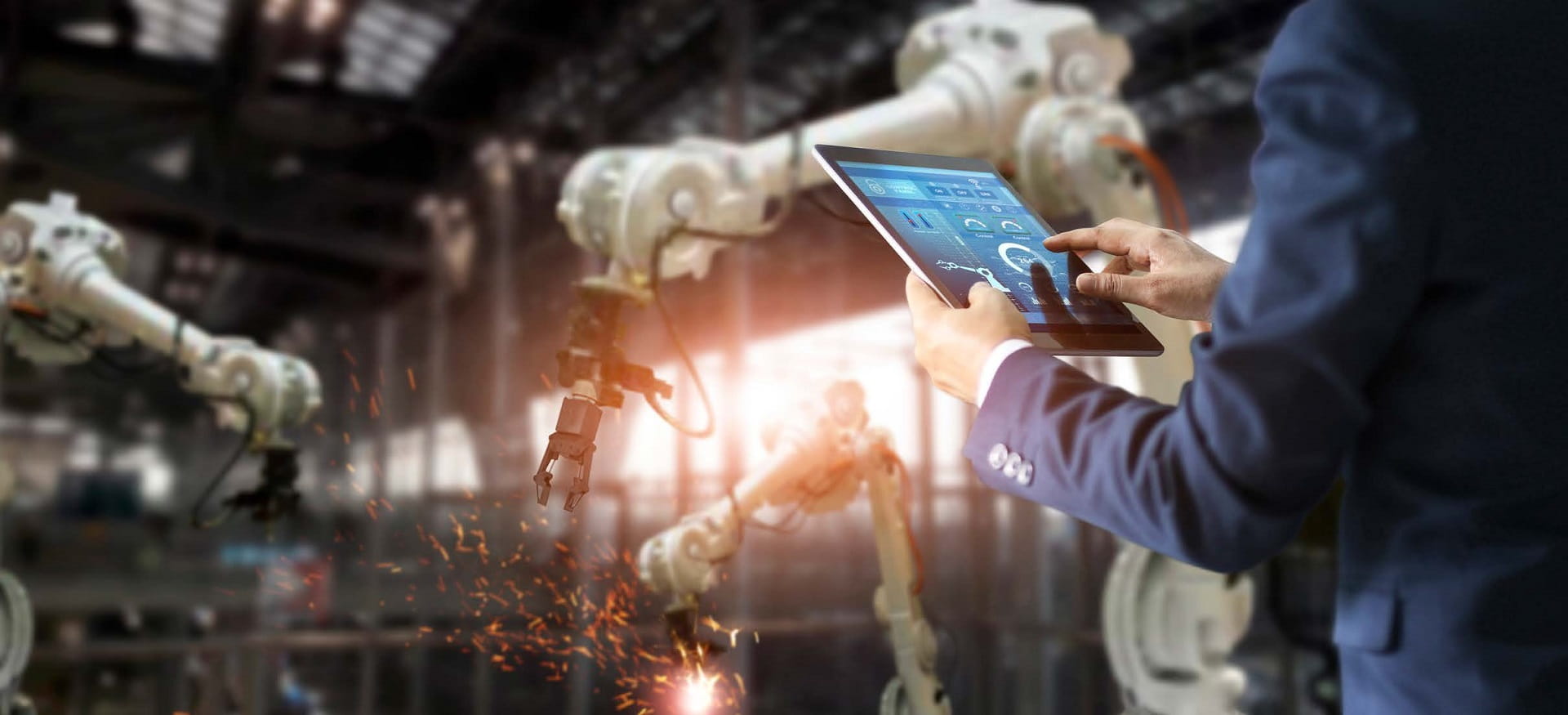Embracing Disruption
AI is transforming manufacturing – and investors should pay attention

The “Internet of Things” (IoT) has made strong progress over the past decade, with connected devices now commonplace across both households and industry. However, in terms of the promises of IoT translating into tangible productivity gains, we have seen some bumps in the road to wider adoption, not least among systems providers seeking sustainable models for monetizing this quickly developing technology. Despite this, the last three to five years have seen a genuine increase in take-up, both in terms of domestic devices such as connected doorbells that are now commonplace, but also across industry and manufacturing, where the promise of artificial intelligence (AI) is driving both the development of innovative solutions and their adoption across a growing number of companies.
In an industrial setting, the concept quickly runs into reality where corporates want to see the prospect of real benefits in terms of costs and productivity before investing in what are often highly complex systems.
However, we are now really seeing a sea change in attitudes with a growing number of implementations and many more conversations taking place between corporates and providers.
While other hurdles to adoption – such as worries about interoperability or obsolescence – are being overcome, the main driver has been the prospect of AI-based systems offering quick and tangible benefits.
On the factory floor
Many of the areas where we are seeing the swiftest growth come under the rubric of optimization – existing processes and systems are made more efficient and cost-effective by introducing AI into existing system.
For instance, corporates already have the sensors on factory floors and the necessary data flow, so AI can be plugged in to offer another level of analytics, albeit one that offers the promise of significant efficiency and productivity gains.
Quality control processes are already seeing benefits from this new level of analysis. For instance, in production systems such as auto manufacturing, it is extremely costly and often impractical to regularly stop the line and inspect each product for quality.
Assessment thus takes place on a sample basis – perhaps checking every 1,000th or 10,000th product, depending on throughput. Yet this process is still costly; products must be inspected, with the detection of any defects possibly leading to production being suspended for investigation and correction. AI tools are now allowing for a great deal more inspection to be undertaken in real time, reducing downtime, and increasing efficiency.
A step further comes in the form of the ability to automate tasks that previously required significant skilled human input. In this respect, we are often talking about giving machines a better understanding of their environment to make decisions more quickly and correctly. A good example here, from outside of the manufacturing world, is in precision agriculture where AI is driving efficiency and sustainability. For instance, crop spraying systems, from both tractors and drones, now widely use AI and deep learning technology to selectively use herbicide, reducing its consumption by up to 80%.
Accelerating adoption
As with any new technology, we are of course seeing differing speeds of adoption across different subsectors and companies. Alongside this, an important consideration for investors is different levels of progress in terms of the capabilities offered by both the large existing players active in industrial automation, and newer smaller providers offering software and other systems.
In terms of the large players, the leaders – in Europe, in particular – have seen the way the wind is blowing for some time, and have been investing heavily in the software aspect of their offering for some years now. Thanks to their ability to integrate these capabilities with their hardware offering, several of the European industrial automation giants now very much have the lead on their US counterparts. Indeed, the US leaders in this space have only made strong moves into software in the last three years or so.
In terms of adoption of these technologies and the realization of tangible efficiency gains, a great deal of differentiation comes due to the nature of the capital involved in different processes. For instance, in the example of precision agriculture above, buying a new tractor or drone that includes the requisite software and sensors is a relatively straightforward proposition. However, for large scale manufacturing plants, adoption will be slower and more staggered as the use of AI and learning systems becomes more embedded across factory floors. For these, the end goal is dark factories, where everything works on its own with no human intervention – hitherto only a promise of science-fiction.
Conclusion
Investors should look towards both companies enabling the AI revolution, including hardware and component producers, software providers, as well as those taking the lead on industrial automation – with Europe being of particular interest here. And, of course, there will be winners and losers in traditional manufacturing among those firms that can quickly capitalize on new AI-driven capabilities and the laggards.
Maintaining an active approach to portfolio management will allow investors the agility necessary to find value in such a rapidly developing sector.






